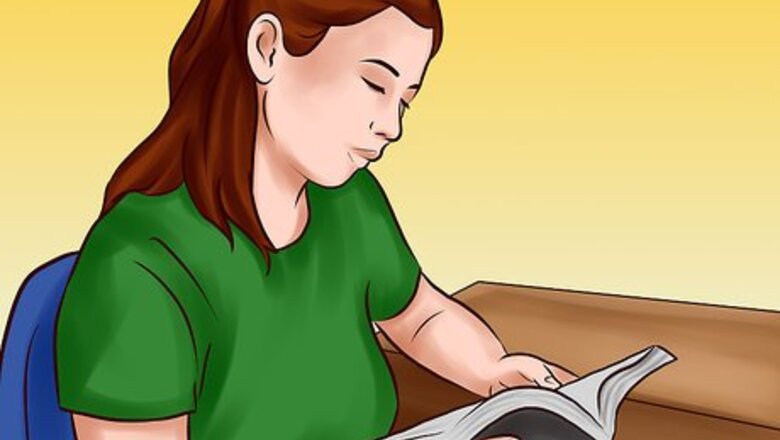
views
Preparing to Read
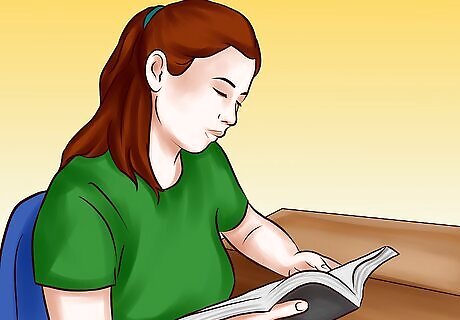
Consider your environment. Your reading area should be free from distractions. Turn off the television, music, internet, phone, anything that has the potential to sidetrack your reading. You should also be comfortable, otherwise, you'll focus on being hungry, too hot, too cold, basically anything other than your book. Do be careful of getting too cozy though. Make sure you can stay awake and pay attention to your reading material. This is especially important if you choose to read in bed before going to sleep.
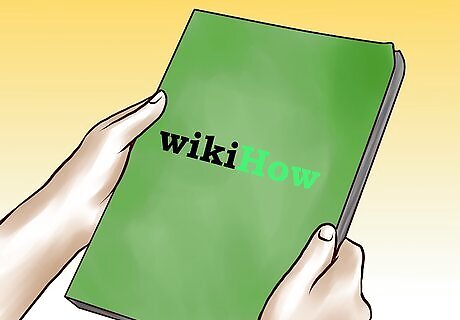
Select a book. It can be anything from a favorite mystery or a textbook. Do choose something in line with your reading goals. For example, if you have trouble finishing a book for pleasure, pick something you're really interested in reading. Don't find something that probably won't hold your interest. Likewise, if you want to be able to quickly read and glean information for school, you should choose something academic.
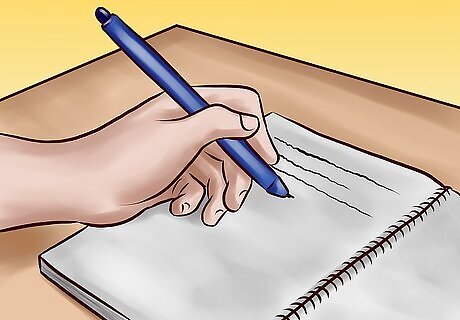
Set obtainable goals. These can be large goals with smaller steps or a simple to-do list you'd like to accomplish. Either way, writing down your goals makes you focus on what you'd like to accomplish and how you can get there. Examples of achievable goals include: reading an entire book by a certain date, paying attention to a whole chapter and being able to recall the information, reading through a book for the main argument, reading a certain number of minutes every night, reading a certain number of pages every day, and reading through a book in less time. Goals are highly individualized and completely determined by you. Your goals should encourage you to continue practicing.
Focusing on Reading

Engage with what you're reading. If you have trouble sitting still and concentrating on what you're reading, make notes or write down a brief outline. Write down any questions you might have about the content before you start reading. Writing things down can be especially helpful if you find yourself reading the same few sentences over and over again without being able to continue. Reading aloud or whispering can help you pay greater attention to your book. You can also move your fingers along with the text to help keep your place in the book and guide you along.

Take short effective breaks. This is your chance to think about something other than what you're reading. Move around, get a snack, watch a little television or whatever helps you mentally pause. Set a time limit in advance and limit the number of rest breaks you take during a given period of time. Doing something physical can re-energize you and make it easier to return to reading.

Practice concentrating on what you're reading. In order to truly focus on concentrating, you need to do it a little every day. After a few days, you should notice some small improvements in your reading. Find a time of day that works best for you to read and try to read a little each day at that time. Soon, it will become a habit. Don't try to remember every single detail when you're reading (for pleasure or for school). You'll become overwhelmed, which will make it difficult to continue.
Increasing Your Reading Speed and Comprehension
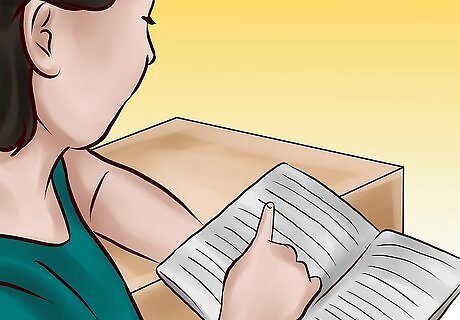
Focus on reading but avoid habits that slow you down. Most of the strategies listed in Method 2 will help you focus when reading faster, but some tools will slow you down. Don't vocalize, highlight text, re-read material, or try to write down every detail you read. Using your finger as a guide can actually help you speed up since your finger can help guide your eyes along as you read.
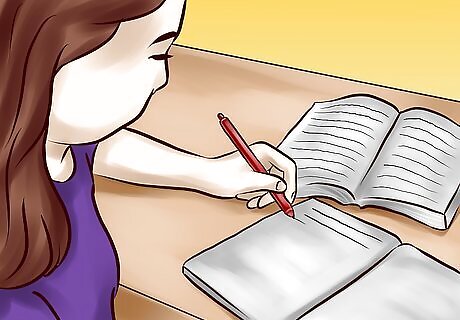
Read effectively by skimming certain parts and paying attention to others. Consider the structure of the book by reading the table of contents. Sure, sometimes skimming stops you from understanding the text fully, so ensure you read parts carefully now and then, and if there's something new, check back and read a little bit. Spend time carefully reading the introduction and conclusion, as these lay out the main themes of the book. Skim through chapters that provide extensive drawings, illustrations, or lots of similar examples. Write down a summary after reading for a while. Be sure to note any key concepts or plot developments. This can help you focus while reading. If you're very pressed for time, you can get the main ideas of the book by reading the first and last sentence of each paragraph.

Train yourself to read faster. Adjust your speed based on the information you're reading. For example, slow down when you encounter main arguments or new concepts. You can speed up again when you come to repeated or familiar material. Time yourself. Give yourself a set amount of time to get through a certain amount of text. Once time's elapsed, evaluate your speed. Keep timing yourself and you should see progress. For example, give yourself an hour to complete reading/skimming a chapter. At the end of the hour, determine if you got the main points of the chapter and understood the information. Practice adjusting your speed if you did not finish or had too much time left.



















Comments
0 comment